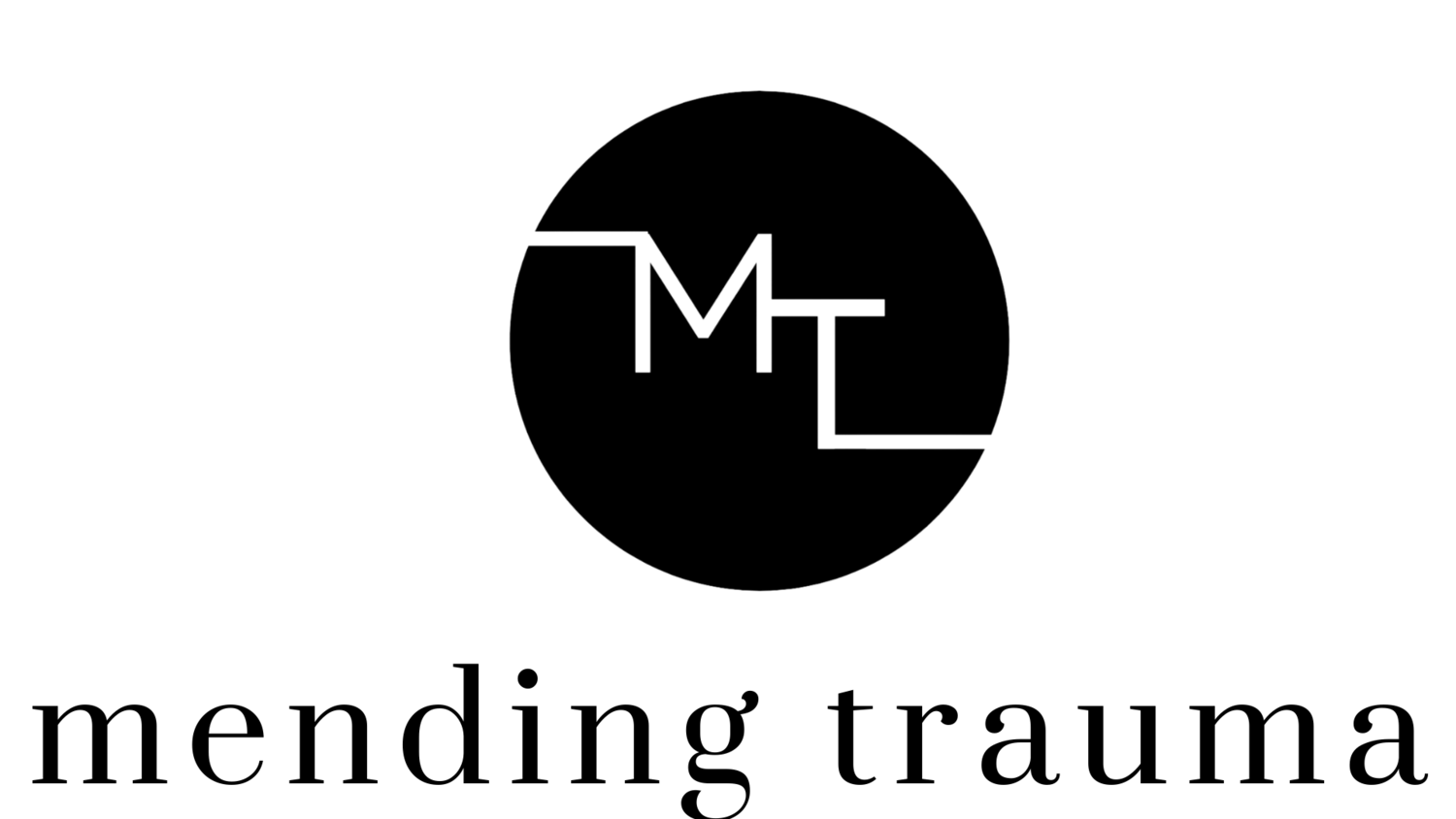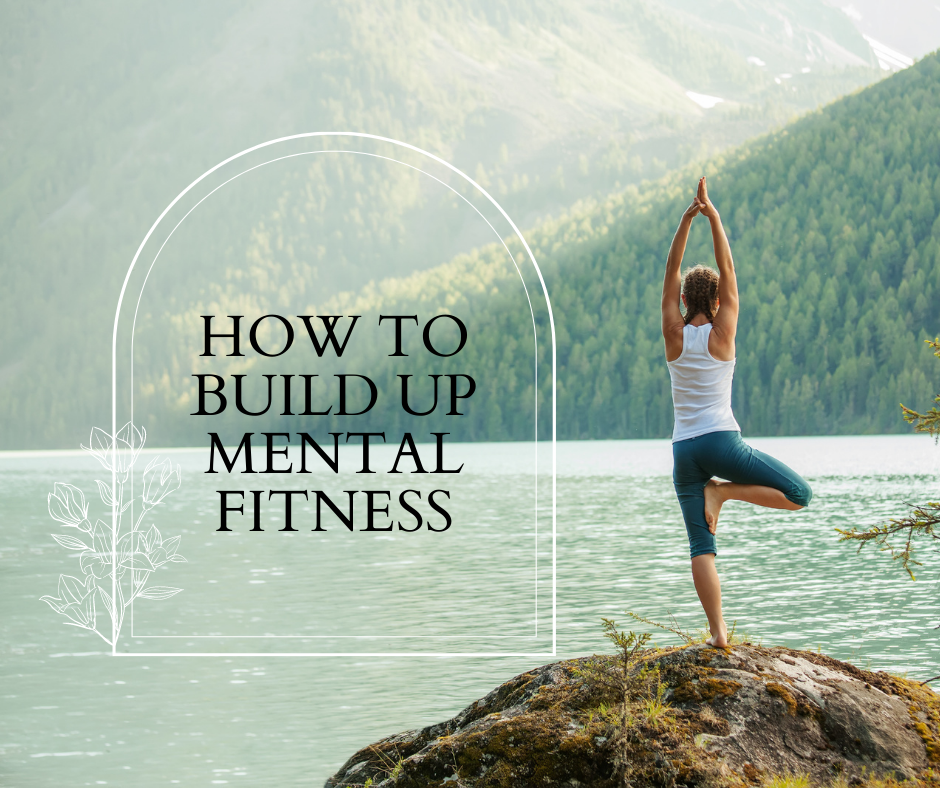How to Build Up Mental Fitness
Today, we’re talking about preventative mental health. We want to compare this to our physical health and how we have a genetic disposition, or even just higher risk factors as we're going through a global pandemic. We can build resilience and can become mentally fit ahead of our stressors. Let’s shift the conversation from mental health to mental fitness.
Preventative Health in Mental Fitness
We invest so much as a society into making sure that we are physically fit, and that we don't have a conversation in our society about mental fitness. Instead, it's called mental health. The idea is always that you're going to get help after something is proving to be very difficult or problematic in your life. We are dedicating today to changing the shift of the conversation into preventative mental health and talking about mental fitness is a great way for us to start looking at this through a different lens and be more proactive about how we treat our ability to find happiness, joy, love and peace in our lives.
It Is Inevitable That We Have Stressors
Whether or not we currently feel the effects of a particular stressor or a global stressor, we want to build our resilience because we will feel stressed at some point, it's inevitable. When we build our mental reservoir and we take care of our mental fitness ahead of time, we're already in a routine so that when the stressors come, our window of tolerance has been built, we have a little bit more in our tank, and we're able to grapple with whatever is coming at us in a less reactive way. We want to try and minimize the overreactions and deal as accurately as possible with what's going on. And of course, there's always emotions that come in.
I think that's hard for all of us to some degree and in certain areas. That's definitely a fact I believe when we talk about building resilience is similar to when we are working on our heart health, for example. What we know is that when we engage in certain physical practices, including the way we eat, the way we move, how often we move, when we engage in those kinds of practices, we are engaging in preventative physical medical health.
The example that comes to mind is this stroke that I had a couple of years ago. And in order to prevent another stroke, there are certain habits and behaviors that I can engage in that are preventative, those habits and behaviors become more important as I am unable to take the medication prescribed because it harms my muscles and so then the ability to hone in on practices and behaviors and establish those as routines and habits becomes more and more important.
Prioritizing Our Mental Routines Or Best Practices
Each of these practices is geared towards helping you calm your central nervous system. Each of these practices is geared towards helping you calm your autonomic nervous system responses. Now of course, some of those autonomic responses are brief. Eating and movement, we're not looking at those, of course we're looking at the ones that interfere with living our best and biggest life, essentially.
Food and Mental Health Relationship
Dr. Daniel Amen has been talking about this for the last few weeks, at least on his social media account, and that is the relationship to food and mental health. You know, a lot of people I think, have probably heard by now that gut health is very, very important, the gut is now considered the second brain. In fact, the majority of our serotonin, which would be our “happy chemical” in our brain, is actually produced in the gut. We have a lot of communication that goes on between the brain and the gut and maintaining a healthy gut is essential for optimal mental wellness.
This is tricky, because particularly the standard American diet is very opposite of what actually produces optimal gut health. There's a lot of research on this, unfortunately, when you are eating the standard American diet and a lot of processed foods which we all indulge in at times, I am not above that we are producing mental and physical disorder. And so the goal is to educate so that you can make better decisions. I like to think of it as foundational, and even though I struggle frequently with that and with making sure that my microbiome is healthy. The microbiome and its health and its balance is very foundational. When we get that in order, as we continue to do these other things, we have more and more success in calming down our nervous system and in widening our window of tolerance.
Moving Your Body
The way I was raised, we did a lot of chores. We had some animals, we did chores outside, we did chores inside and I remember our parents often walked. I mean for years, every morning, they would go on walks together. That was very helpful in terms of modeling. So we had some movement of our body and we had some great models of people moving their bodies. What I want to pay attention to in this conversation is oftentimes in Western culture, exercise is used to change the body into a certain aesthetic. So it's appealing to the physical senses to the aesthetics, right to how your body looks, this is a different conversation.
This is exercise to help your brain which will actually possibly change the aesthetics of your body. But the goal is not to have a “perfect body” or a body that is appealing by whatever cultural standards you're living. The goal is to get blood flow to the prefrontal cortex, because the prefrontal cortex is where your executive functions are. If we can increase blood flow to your prefrontal cortex, where you are making decisions from logic instead of fear, you are automatically going to give yourself a chance of increasing that window of tolerance that we've talked about. This is about how you feel. And part of mental fitness is shifting the conversation from how we look to how we feel.
There are plenty of times I've looked amazing in my life, and I did not feel good mentally at all. And there are times where I don't look as good aesthetically, physically, and my mental game is much better. And so we have to start attending to those inner feelings instead of our exterior. The other thing that occurred to me is that as we become more and more proficient and efficient in our preventative mental health, how we look becomes less important.
Having Outside Time
One of the other skill sets part of the skill set of mental fitness and preventative mental fitness would be having outside time so outside time is so important for sunlight for or air for connecting with the earth, I honestly didn't understand the benefits of this when I was younger, we did it organically because we were of the generation of come home at dark because we did live in the country. And we were able to be outside riding horses, or building tree forts or swimming pretty much all day during the summer. Those are my most cherished childhood memories of playing outside. And so outside time is about giving our body a connection to nature. And I realize some people have asthma, and they have allergies, and so forth. But we're speaking in general sunlight, fresh air, taking your shoes off and walking on the ground and connecting to the earth and the energy of the earth, quite frankly, the Earth is a growing living thing.
When we connect with that gardening, anything that's going to connect you with the outside world can only be for your benefit. Having recently moved to Missouri, I'm thinking of a cousin of ours who also recently moved to Missouri and recognizing that when we went to the home to see if we could borrow something, he was actually sitting in the dark and at his picture window, watching the fireflies. And while he wasn't outside, what he was doing was engaging in nature. The profound impact of engaging in nature has been documented in many studies, there are a lot of studies that talk about the benefits of walking in nature, trees in particular can be very beneficial for us. When we are able to be amongst nature, the best way we can in our current environment, that actually has been shown to calm down your nervous system and to lower your blood pressure.
Finding Joy
One of the best activities we did this summer is we caught fireflies with the twins just temporarily and then we also let them go. But my kids wanted to catch fireflies in a jar and I actually did it with them! It was so much fun! So one of the last things I want to talk about is joy, laughter, and play.
Where you are getting your joy and your laughter and your sense of play right now, is so undervalued in our society. Even in my own brain, I have to force myself to be playful. I love my work. I love my research. I absolutely love what I do for a living. And it's very difficult for me to go play and shut that part of myself off. But it is so necessary because joy and laughter is so healing and so we want to encourage you to dive into what you love. Is it fishing? Is it hiking? Is it crocheting? Is it needlepoint, it doesn't matter what it is, as long as it's an activity where you almost lose time when you're doing it. That's how I can tell when I'm in my mode of joy and fun. It's like time just flies by.
We want to shift the public discourse from talking about mental health strictly to engaging in a much wider and deeper conversation about mental fitness, which is a preventative measure to help us with our mental game. And in this way, Lina likes to call it being a mental Ninja, which I love. We want to be mental ninjas. And a ninja is someone who trains and trains and trains in the unlikely event that they will need to use their skill set, we will need our skill set, we will need our mental skill set but we are training each day so that we can become stronger and stronger. we're incorporating the gut, we're incorporating connection to other people, connection to the earth. We're incorporating laughter and fun, we're incorporating moving our body. And of course, both of us have benefited from professional help.
We've also really benefited from our connection with higher power and working constantly on our connection with other people by reducing divisiveness and reducing contention.
How will you begin to build up your mental fitness today?
For additional tips on mental health, trauma, and so much more check out The Universe Is Your Therapist Podcast!
Come connect with us personally on Instagram!


